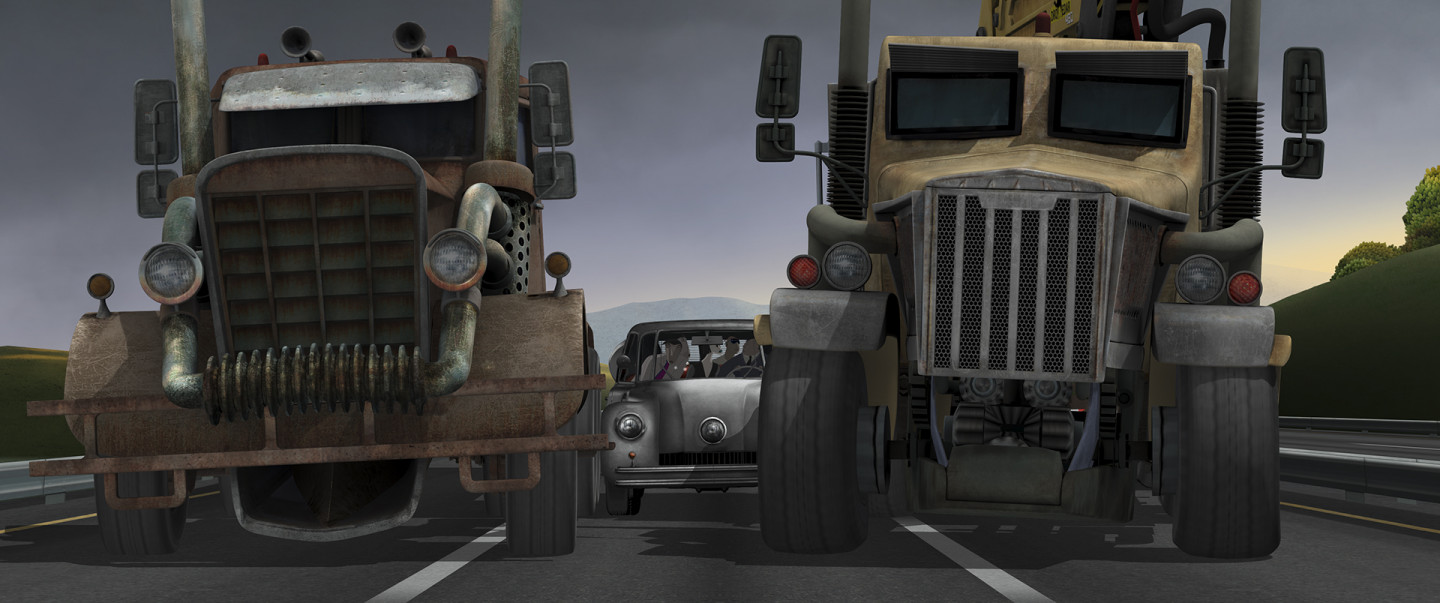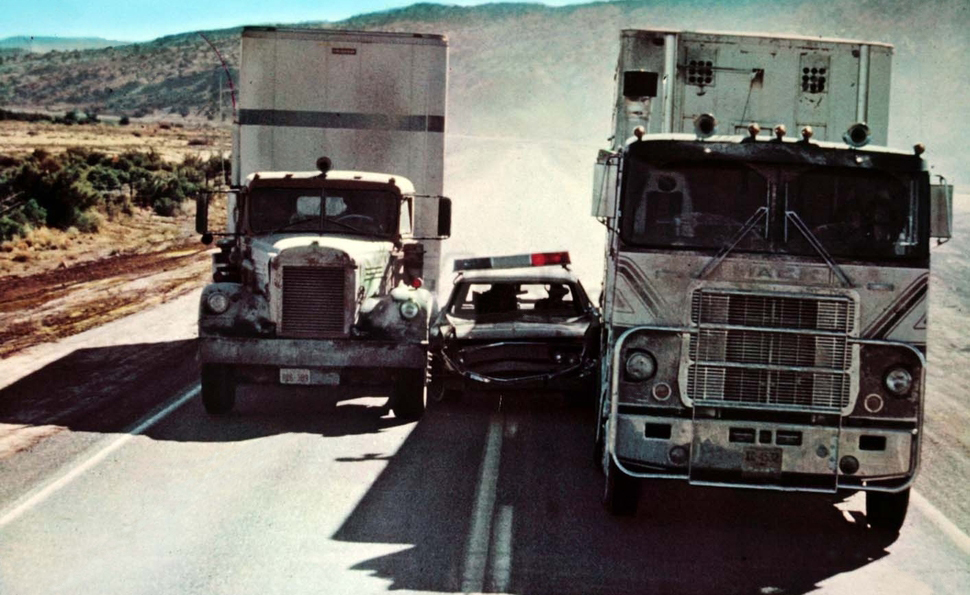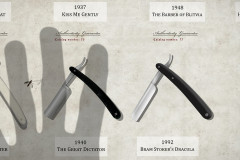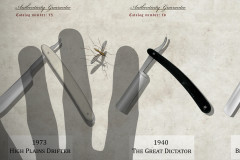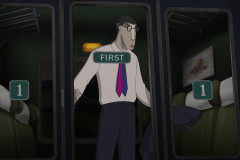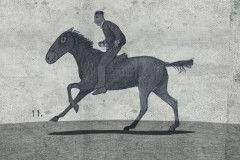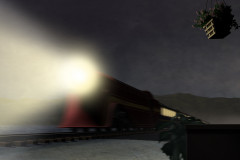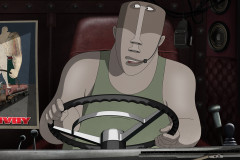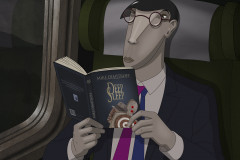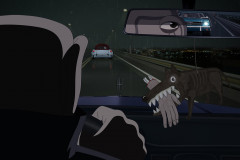Egy Gumikacsa becenevű kamionos összeütközésbe kerül a korrupt hatóságokkal, és akaratán kívül a kisemberek lázadásának vezetője lesz. Egyre többen csatlakoznak hozzá, óriási konvojjá duzzadva haladnak át az országon, és Gumikacsa azon kapja magát, hogy már nincs visszaút. Az, hogy a kamionos modern westernhősként jelenjen meg, nem ennek a filmek a találmánya: számos country- és rockdal aktualizálta így a 70-es években a jellegzetes amerikai toposzt.
Volt C. W. McCall country-énekesnek egy dala a 70-es évek közepén, a Convoy, amely egy kamionos-lázadást mesélt el. Olyan vagány és mámoros hangulatú volt a dal, hogy egyből minden slágerlista élére ugrott, és pár éven belül film is lett belőle. Sam Peckinpah road movie-ja, amely Kris Kristofferson és Ali MacGraw főszereplésével készült, nagyvonalakban a dal történetére épül. Peckinpah korábban főleg westerneket rendezett. Nem csoda hát, hogy a zsánerre jellemző sémákkal dolgozott itt is, de a „csendőr-haramia” történet ezúttal a lázadó kamionosok és az USA rendőrségének összecsapásában jelenik meg.
Peckinpah mozija bizonyos szempontból egyszerű: teljesen világos, hogy a filmben kik a jók, és kik a rosszak. Mégis több szimpla hőstörténetnél. Az izgalmas, remekül megrendezett képsorok a társadalmi erőszak és manipuláció háttere előtt zajlanak. Az akciófilm hatáskeltő eszközei pesszimista korképet rajzolnak ki. Azt látjuk, ahogy az „amerikai álom” megfullad a merev, erőszakkal fenntartott rendben, és hogy az individualista szabadságeszmény anarchista szabadulási kísérletnek minősül. Benne van az is, ahogy a politika megpróbálja kisajátítani az eseményeket, hogy kampánycélokra használják fel. A főszereplők azonban legalább önmaguk számára meg tudják menteni az igazságot, és még happy end is kerekedik.
A film nagyon erős szimbólumot alkotott az országon átvonuló hatalmas konvojjal, és az összetartozás és az autonómia érzését kelti a nézőben. Felszabadító látni, ahogy a kamionosok között rádión körbefut a hír, egyre többen csatlakoznak, egyre erősebbek lesznek, és átmenetileg kiszakadnak abból a világból, ahol addig kiszolgáltatott kisemberek voltak. Ahogy C. W. McCall slágerében is elhangzott: csatlakozz a konvojunkhoz, és semmi sem állhat az utunkba. („Come on and join our convoy / Ain't nothin' gonna get in our way. / We gonna roll this truckin' convoy / 'Cross the U-S-A.”)
Convoy (dir. Sam Peckinpah, 1978)
A trucker nicknamed "Rubber Duck" clashes with corrupt law enforcement and unintentionally becomes the leader of a grassroots rebellion. As more and more truckers join him, they form a massive convoy rolling across the country—and Rubber Duck soon realizes there’s no turning back. The image of a trucker as a modern-day Western hero wasn’t new in the 1970s; many country and rock songs reimagined the classic American archetype in just that way.
One such song was Convoy, a mid-70s hit by country singer C. W. McCall. It told the story of a trucker uprising in such a wild and infectious tone that it shot to the top of the charts—and was soon adapted into a film. Sam Peckinpah’s Convoy, starring Kris Kristofferson and Ali MacGraw, loosely follows the song’s storyline. Known primarily for his Westerns, Peckinpah naturally brought the genre’s familiar themes and dynamics into this road movie—but this time, the standoff plays out between rebellious truckers and the American police.
In some ways, Convoy is straightforward: it’s clear who the good guys are and who the bad guys are. But it also goes beyond a simple hero narrative. Beneath the thrilling, expertly directed action sequences lies a grim commentary on societal violence and manipulation. The film’s use of genre tropes paints a pessimistic portrait of the times, showing how the “American dream” suffocates under rigid, forcefully maintained order, and how the ideal of individual freedom becomes an anarchistic act of defiance. It also shows how quickly political forces try to hijack such uprisings for campaign gain. Still, the protagonists manage to preserve their sense of justice—and the film even offers a sort of happy ending.
The image of the ever-growing convoy became a powerful symbol of unity and autonomy. There’s something liberating about watching the truckers spread the word over the radio, seeing more and more rigs join in, gaining strength as they go—briefly escaping a world in which they had been nothing more than powerless individuals. As McCall’s song put it:
"Come on and join our convoy / Ain’t nothin’ gonna get in our way / We gonna roll this truckin’ convoy / ‘Cross the U-S-A."






